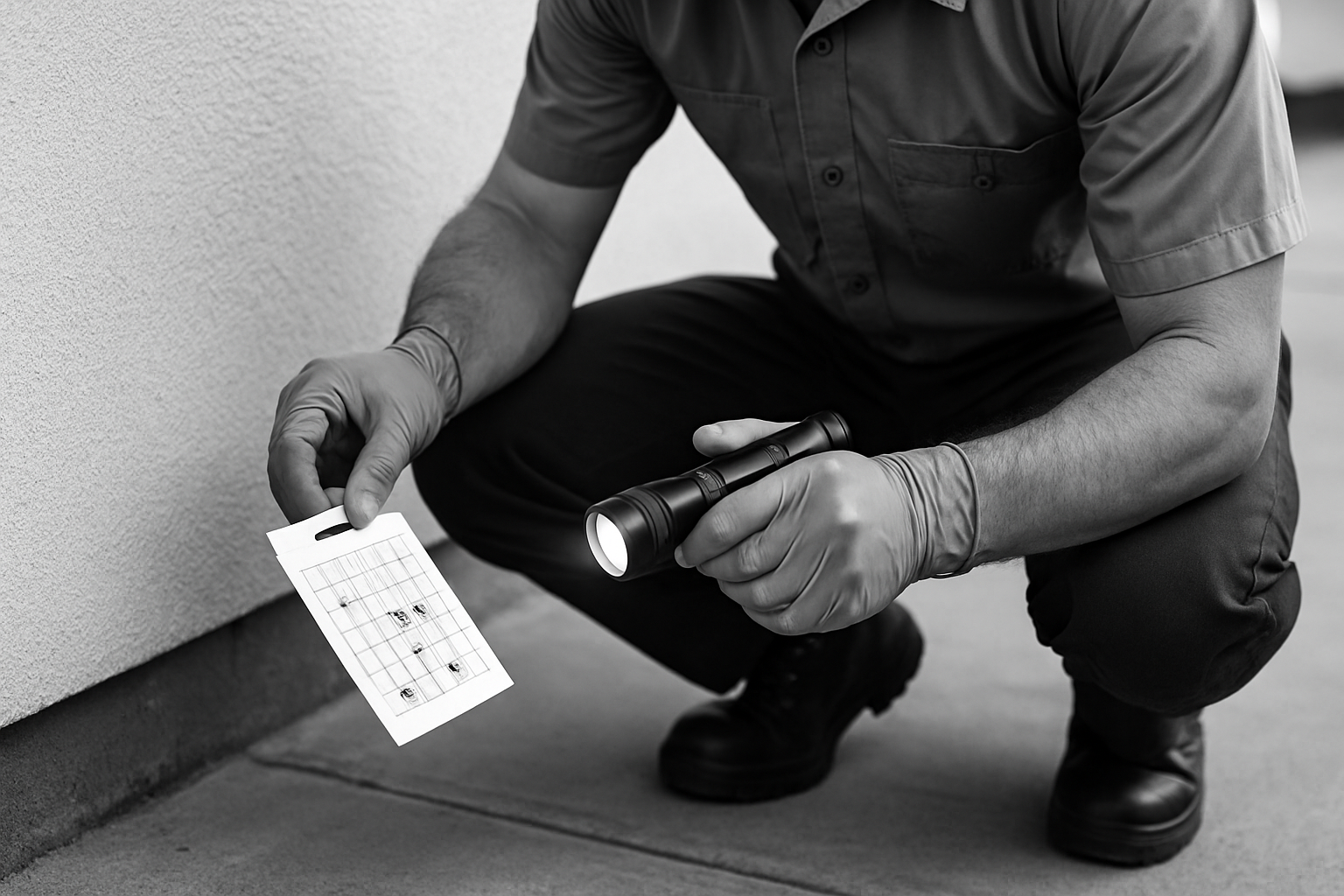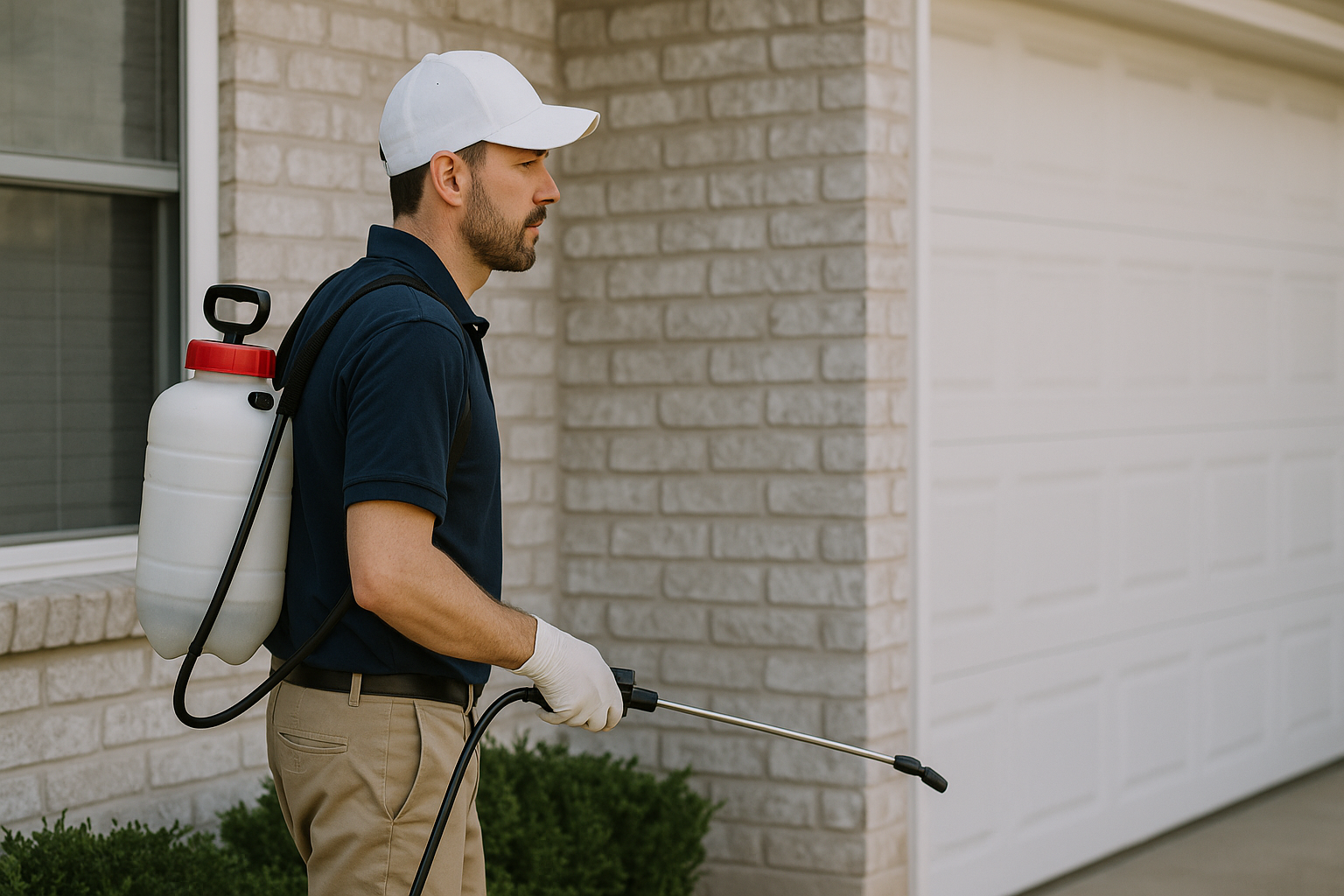Table of Contents
Overview of Insect Control Maintenance Plans / IPM Monitoring
Insect Control Maintenance Plans / IPM Monitoring represent an advanced, sustainable approach to managing pest populations within commercial, residential, and industrial settings in Dubai. These plans emphasize ongoing surveillance, use of monitoring devices, and timely interventions rather than reactive extermination. Integrated Pest Management (IPM) focuses on identifying pest presence accurately, evaluating infestation levels, and applying control methods that minimize harm to the environment and human health.
For many Dubai businesses, especially in sectors like hospitality, food processing, and healthcare, maintaining effective insect control is crucial to meet stringent Dubai Municipality public health standards and safeguard brand reputation. The adoption of structured maintenance plans through scheduled monitoring helps facilities consistently comply with regulations and avoid costly infestations. Implementing structured Insect Control Maintenance Plans / IPM Monitoring in Dubai ensures long-term protection and compliance.
Key Components: Monitoring Devices, Revisit Schedule, Warranty Terms
The backbone of any successful Insect Control Maintenance Plans / IPM Monitoring service lies in three core components: effective monitoring devices, a well-planned revisit schedule, and clear warranty terms that ensure ongoing protection.
- Monitoring Devices: Strategic placement and selection of monitoring tools allow early detection of insect activity.
- Revisit Schedule: Regular follow-up visits enable technicians to assess monitoring data, perform treatments if necessary, and adjust the IPM strategy.
- Warranty Terms: Defined service guarantees foster trust by outlining coverage, response times, and remedial measures.
This triad collectively supports a proactive methodology that prevents pest outbreaks rather than merely responding to them after infestation escalates. That’s why structured Insect Control Maintenance Plans / IPM Monitoring are critical for Dubai facilities.
Monitoring Devices: Types and Usage in Dubai Environments
Within Dubai’s unique urban and climatic conditions, choosing suitable monitoring devices is essential to target key insect pests prevalent in offices, hotels, warehouses, and residential complexes.
Common Monitoring Devices Employed
- Glue Boards: Widely used for crawling insects; placed near entry points, kitchens, and storage areas to capture insects for visual inspection.
- Light Traps: Particularly effective against flying insects such as flies and moths; commonly installed in food preparation and waste handling zones.
- Bait Stations: Targeting ants and cockroaches, bait stations combine attractants with insecticides to monitor and reduce infestations.
- Electronic Sensors and Digital Monitoring: Advanced smart devices provide real-time data remotely, increasingly deployed in high-value properties within Downtown Dubai and Business Bay.
Appropriate placement and frequent inspection of these devices ensure that insect populations are detected early. This early warning allows technicians to intervene swiftly before infestations become severe and costly to control. This is a central element of effective Insect Control Maintenance Plans / IPM Monitoring in Dubai.
Importance of Revisit Schedule in Effective Pest Management
The revisit schedule defines the frequency at which pest control professionals return to assess the site, inspect monitoring devices, and perform treatment or preventive measures.
Dubai’s warm climate, combined with high humidity levels especially in coastal areas like Dubai Marina or Jumeirah, creates an environment conducive to rapid insect population growth. This climatic factor makes consistent revisits critical to maintaining control.
Recommended Revisits Frequency
| Facility Type | Suggested Revisit Schedule |
|---|---|
| Food Processing/Storage Facilities | Bi-weekly |
| Hotels and Hospitality | Monthly |
| Office Buildings | Every 6 weeks |
| Residential Complexes in Dubai Marina, Nad Al Sheba | Monthly |
Adhering to a revisit schedule allows for data collection over time, enabling trend analysis and better decision-making on treatment methods aligned with IPM principles. Businesses relying on Insect Control Maintenance Plans / IPM Monitoring in Dubai benefit from this consistent approach.
Understanding Warranty Terms for Insect Control Services
A clearly defined warranty is pivotal for building client confidence in the effectiveness of insect control maintenance plans. In Dubai’s competitive market, top providers offer warranties that detail the scope of protection, conditions, and remedies.
Key Elements of Warranty Terms
- Coverage Period: Duration during which service will respond to insect issues at no extra charge.
- Response Time: Maximum time allowed for technician arrival upon complaint or detection of new insect activity.
- Scope of Treatment: Specifies which insect species and areas are covered.
- Exclusions: Conditions that invalidate warranty such as client site modifications or failure to maintain environmental hygiene.
Properly communicated warranty terms reduce disputes and help businesses in Dubai meet Dubai Municipality requirements with confidence. Clear warranties are part of comprehensive Insect Control Maintenance Plans / IPM Monitoring trusted by Dubai businesses.
How Dubai Regulations Shape IPM Maintenance Plans
Dubai Municipality mandates strict compliance with public health pest control regulations, particularly in food handling and hospitality industries. These guidelines drive the need for consistent pest monitoring and control methodologies aligned with IPM principles.
Compliance requires regular documentation and reporting of insect control measures. Maintenance plans incorporating monitoring devices, scheduled revisits, and service warranties enable Dubai-based businesses to demonstrate accountability and meet Dubai Municipality standards. This alignment is exactly what Insect Control Maintenance Plans / IPM Monitoring in Dubai are designed to achieve.
For more detailed information on regulatory requirements, please visit the Dubai Municipality Public Health & Pest Control Section.
Insect Control Maintenance Plans / IPM Monitoring with Saniex Dubai
Saniex Dubai offers comprehensive Insect Control Maintenance Plans / IPM Monitoring services focused exclusively within Dubai localities such as Downtown Dubai, Dubai Marina, Business Bay, and Nad Al Sheba. Their approach carefully integrates:
- State-of-the-art monitoring devices tailored for Dubai’s unique insect challenges.
- Customized revisit schedules based on facility type and infestation risk level, ensuring timely interventions.
- Transparent warranty terms that protect clients’ investments and provide peace of mind.
Saniex’s expertise aligns with Dubai Municipality regulations and utilizes environmentally responsible treatments, prioritizing safety for residents, staff, and Dubai’s ecological standards.
Conclusion: Ensuring Long-Term Success with IPM Plans
Implementing effective Insect Control Maintenance Plans / IPM Monitoring is essential for Dubai businesses aiming to maintain hygienic, pest-free environments while complying with local health regulations.
For establishments in Dubai committed to sustainable and regulatory-compliant pest management, partnering with dedicated service providers like Saniex Dubai ensures tailored IPM strategies delivering long-term benefits.
Take action today and secure your facility’s pest control success with a professionally designed maintenance plan focused on Dubai’s unique needs.
Insect Control Maintenance Plans, coupled with Integrated Pest Management (IPM) monitoring, form the cornerstone of sustainable and effective pest management strategies. In Dubai’s unique urban and environmental landscape, these programs are not just about immediate pest elimination but focus on long-term prevention and ecosystem balance, essential for businesses and residential settings alike. Implementing rigorous pest control and IPM monitoring strategies ensures compliance with Dubai Municipality guidelines and DHA health standards, minimizing health risks while protecting property and reputation.
The Benefits of Sustainable IPM Monitoring in Dubai
By adopting structured Insect Control Maintenance Plans / IPM Monitoring in Dubai, businesses gain robust pest control and monitoring benefits. Dubai clients enjoy numerous tangible benefits crucial to safeguarding health, compliance, and operational efficiency:
- Minimized Health Risks: Effective monitoring reduces exposure to pest-borne pathogens—especially critical in Dubai’s hospitality and food sectors regulated by DHA and Dubai Municipality Food Safety Department.
- Regulatory Compliance: Regular reporting and adherence to MOHAP and DED pest control guidelines ensure clients avoid penalties and maintain necessary health permits and certifications.
- Cost Efficiency: Preventative plans reduce costly emergency treatments and potential property damage from unchecked infestations, important for commercial tenants in Dubai Marina or Downtown Dubai.
- Environmental Stewardship: Utilizing IPM aligns with Dubai’s sustainability initiatives, reducing chemical usage and promoting eco-friendly practices consistent with ESMA and Dubai Municipality environmental policies.
- Improved Client Confidence: Businesses demonstrating proactive pest management reassure customers and employees, fostering a safer business environment.
Implementation Best Practices for Dubai Properties
To maximize the effectiveness of Insect Control Maintenance Plans / IPM Monitoring in Dubai programs, operators should consider these Dubai-specific best practices, founded on local regulations and environmental conditions:
- Engage Licensed Pest Control Professionals: Ensure service providers hold certification from Dubai Municipality’s Pest Control Section and are familiar with relevant DHA and MOHAP directives.
- Leverage Technology and Data Analytics: Advanced monitoring technologies such as digital trap reporting and real-time pest activity sensors allow rapid response and continuous improvement in treatment plans.
- Educate Facility Staff and Occupants: Training building managers and employees on hygiene practices and pest recognition enhances early reporting and prevention efforts.
- Customize Plans Based on Site-Specific Risks: Insect pressure varies dramatically between locations like corporate offices in DIFC versus food processing units in Jebel Ali Free Zone; plans must be tailored accordingly.
- Coordinate with Regulatory Inspections: Align maintenance schedules with Dubai Municipality audits or DHA facility inspections to ensure readiness and compliance at all times.
Addressing Common Challenges in Dubai’s Urban Pest Environment
Dubai’s rapid urban development, ambient climate, and diverse economic sectors pose unique challenges for Insect Control Maintenance Plans / IPM Monitoring for effective pest control and monitoring efforts:
- Climate Factors: High humidity and temperature fluctuations encourage breeding of mosquitoes, flies, and cockroaches. Monitoring programs need to intensify focus during peak seasons and rainy intervals typically observed in Dubai’s climatic patterns.
- High-Density Developments: Properties like Dubai Marina and Business Bay have closely packed buildings creating pest migration corridors, requiring coordinated control efforts across neighboring units.
- Food Industry Demands: Dubai’s thriving food and beverage sector, governed rigorously by DHA, demands zero tolerance for infestation which reinforces the need for thorough IPM integration.
- Rapid Construction and Renovation: Frequent building projects generate dust, debris, and voids that become ideal niches for pests, pressing for maintenance plans that adapt quickly to changing site conditions.
Future Trends and Innovation in Insect Control Maintenance Plans / IPM Monitoring
- Smart Trap Sensors: Integration of IoT devices in traps for real-time pest activity alerts facilitates immediate interventions before infestations escalate.
- Data-Driven Decision Making: Cloud-based software analyzes historical pest data from multiple Dubai locations, helping anticipate outbreaks and optimize treatment schedules.
- Eco-Friendly Products: There is growing preference for biological controls and botanical insecticides that meet ESMA registration and align with Dubai’s green building standards.
- Community-Based Programs: Collaborative pest management between adjacent buildings in Dubai Marina or Jumeirah reduces migration and increases overall neighborhood pest resilience.





